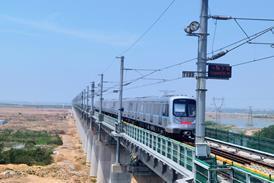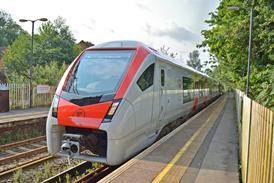FOR some time now it has been clear that all is not well at Intercontainer-Interfrigo (ICF), and the mostly state-owned railways which own ICF are contemplating a radical restructuring for the ailing co-operative. One idea gaining favour is floating it off as one or more free-standing pan-European intermodal companies operating independently in the private sector. ICF is potentially a strong operator in the intermodal field, with some 1·3 million TEU handled annually and a strong customer base.
Serious trouble emerged two years ago. ICF had to write off bad debts after Logarus, the German operator specialising in car distribution, went bankrupt. Margins were squeezed to nothing in 1998 by ferocious road competition. Faced with losses running at 5m euros a year, the Board decided last January to split ICF into five separate companies: four intermodal plus Interfrigo.
The Board scrapped this plan on July 27 primarily because months of argument had failed to produce agreement on the distribution of assets and shareholdings in the new companies among the owning railways. ICF Managing Director Søren Rasmussen was told to clear his desk and go. René Hellinghausen replaced Louis Devillers as President of the Board, and also became Managing Director and Chairman of the Executive Committee.
His first task was to reassure customers who had been complaining bitterly about the decision to split the Intercontainer operation into four route-based companies. The directors now accept that the loss of network synergy would have been serious, had the restructuring gone ahead as planned. Many large customers would have lost the one-stop shop facility they currently enjoyed, and utilisation of the wagon fleet would probably have suffered. Interfrigo, which moves temperature-controlled products in wagons (and increasingly in block trains), is now a small operation contributing only a few percent of ICF’s turnover.
Simply reverting to the pre-1999 situation is no longer an option. Advisers point out that ICF faces serious and growing on-rail competition from its owning railways. This leads to tensions because of the cumbersome arrangement whereby ICF sells a service but relies on the same railways for delivery. Clearly, the co-operative set-up is outdated. ICF’s borrowings to purchase wagons or cover losses are currently guaranteed by Europe’s governments through their state railways. English Welsh & Scottish Railway may be the first private company to hold ICF shares, acquired with the purchase of Railfreight Distribution from British Rail in November 1997, but it will surely not be the last as restructuring of the industry gathers pace.




















